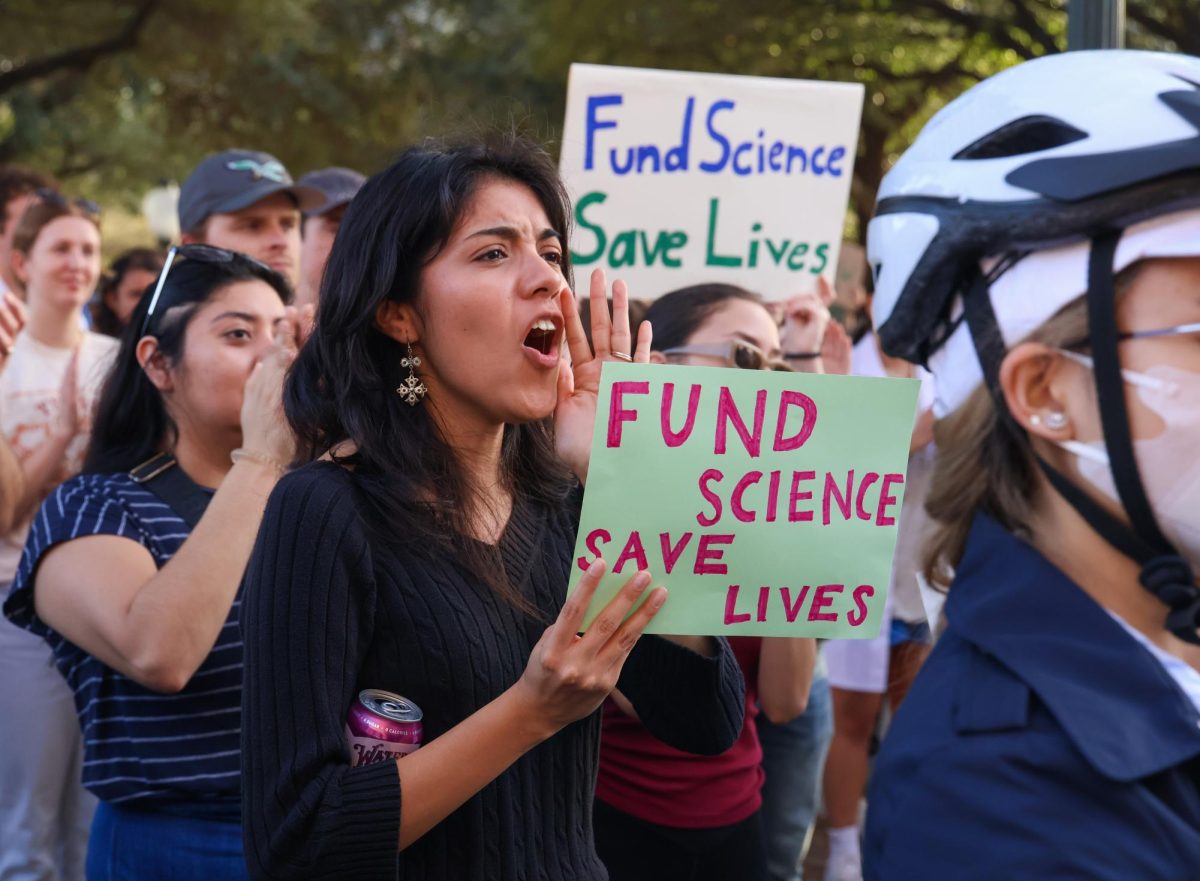An estimated $8 million dollars is circulating through Austin because of Texas Relays, said city officials.
The Texas Relays, an annual series of races held throughout the city, generates revenue in the hospitality industry each year. Students from high school, UT and other colleges participate in the event.
The relays brought an estimated 40,000 people to Austin this year, said Rebecca Martin, senior vice president of marketing at the Austin Chamber of Commerce.
Hotels, restaurants, taxis, Capitol Metro and Sixth Street probably took in much of the revenue, she said.
“Everything that is affiliated with the hospitality industry is affected,” she said.
The impact comes from visitors who come in and spend their money, said economics professor Daniel Hamermesh. He estimated after the $8 million circulates through the Austin economy, businesses could have enough money to create or sustain approximately 300 jobs.
“That may be a high estimate; it’s very iffy,” he said. “I don’t think the effects are very big. We’re not talking Super Bowl are we? But it still helps. It’s small potatoes, but it’s something.”
The Super Bowl was expected to bring in 150,000 visitors and generate $611 million for establishments in the Dallas-Fort Worth area.
Texas Relays is a very profitable weekend for the hospitality industry, said Theresa McCarthy, general manager of the North Austin Drury Inn & Suites on Interstate Highway 35. But serving the extra amount of people is labor intensive and costs are high, she said.
“It’s a good weekend for us,” she said. “It’s crazy busy, and we’re all brain dead from the stress of it, but it’s good.”
The relays compare with the Republic of Texas Biker Rally — an annual motorcycle parade in downtown Austin — and UIL high school men’s and women’s basketball championships in size and impact, McCarthy said. The Drury served 600 people two meals per day, raising its food costs and increasing staffing throughout the hotel to accommodate the high volume of guests staying for the event, she said.
The Drury removes most discounts during special events, including lower weekend rates that occur during slower times, McCarthy said. Other hotels often increase to a “special events” rate that is much higher than standard rates, she said.
“Were the relays to move out of Austin, it would require us to re-evaluate our budgets and most likely project less revenue for the month,” she said. “As for the overall revenue to the city, I’m not sure that the restaurants and stores or hotels could make up for that lost revenue without bringing in another citywide event to replace it.”




















